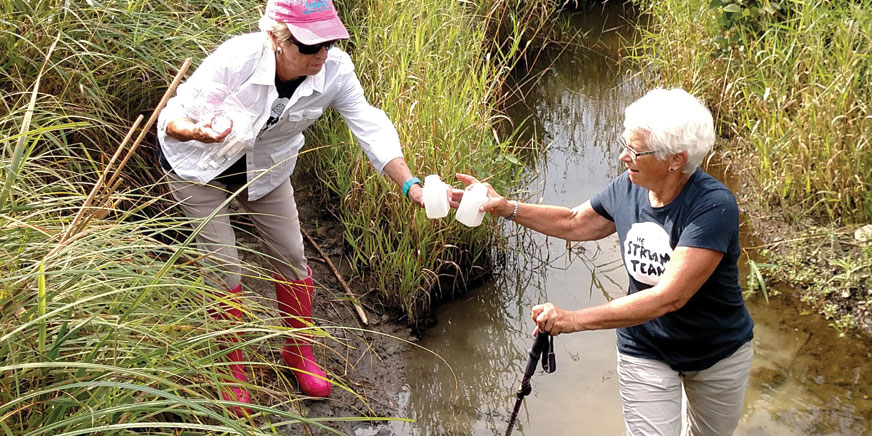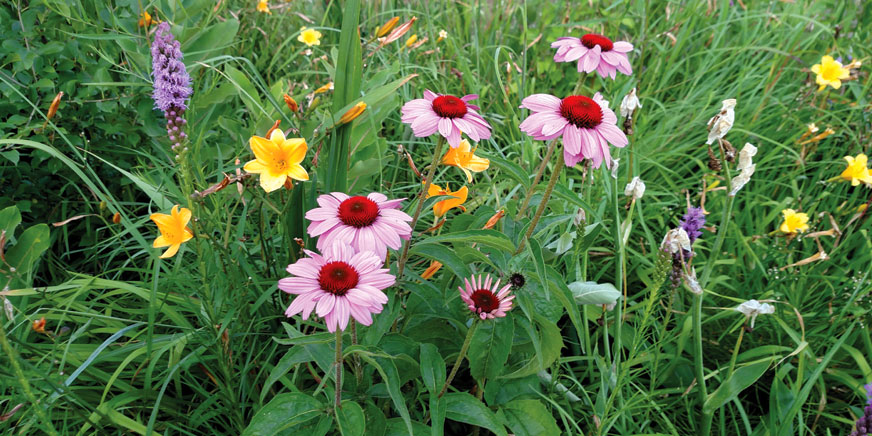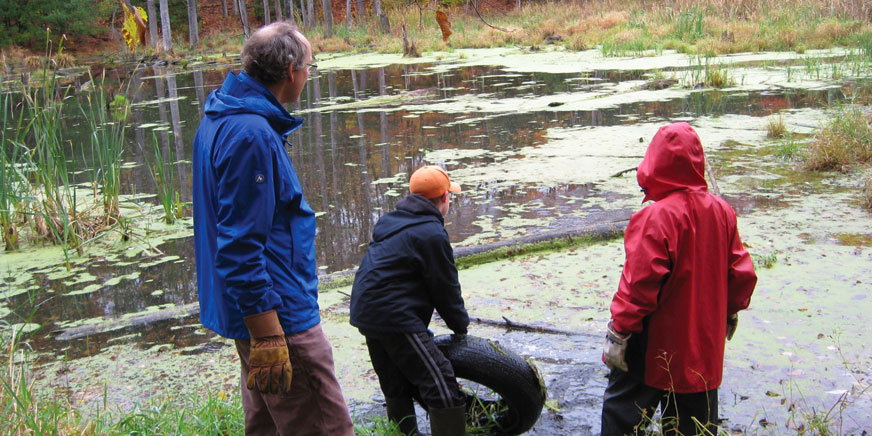
The Stream Team is the community engagement arm of Rethink Runoff, offering volunteer opportunities, educational workshops, and engaging events in the towns it serves.
Upcoming Events and Workshops
Get tips and updates about upcoming events!
Each seasonal issue is packed with things to you do to help keep Lake Champlain clean, and we’ll never share your information.
Volunteer Opportunities

Stream Monitoring
Join our team of citizen-science volunteers who collect water samples from streams on a bi-weekly basis throughout the summer. These samples are vital in helping to monitor trends in levels of phosphorus, chloride, and turbidity in our waterways.

Adopt-a-Rain-Garden
Do you have a green thumb? Help us keep our rain gardens clean and healthy. Rain gardens help “Slow the Flow” by absorbing and filtering rainwater. Volunteers sign up for 1–2 years of stewardship, and since the gardens capture their own water, they don’t require much maintenance!

Stream Clean-ups
Stream Team volunteers help recover trash that has washed into the waterways. From car tires to old toys, we never know what we’ll find. This is an effective way to get involved as long as you don’t mind getting wet and your hands dirty for the sake of conservation.

Workshop & Events
Throughout the year, we offer a variety of workshops on topics such as green lawn care or how to build a rain barrel. We often organize storm drain mural painting contests, bringing together art and clean water messages. We are also available to present to school groups.
Book a Speaker
Do you have a classroom or community organization that is interested in learning about water quality? Book a guest speaker from the Stream Team! We are happy to present to groups of any age with interactive programs ranging from “Build a Watershed” for younger learners to “Change Your Stormwater Footprint” for adults. Read on to learn more about our offerings. Presentations are offered free of charge to any school or community organization based in our 9-municipality service area.
The Water Cycle (K-5)
Watershed Explorers (Middle School)
Change Your Stormwater Footprint (High School/Adult)
Urban Streams in Chittenden County (High School/Adult)
About The Stream Team
The Stream Team is the outreach arm of Rethink Runoff, managed by the Chittenden County Regional Planning Commission and run by the Winooski Natural Resources Conservation District.
Special focus is placed on impaired streams in the eight municipalities that are subject to the Municipal Separate Storm Sewer Systems (MS-4) permit under Phase 2 of the Federal Clean Water Act. The impaired streams are Allen Brook, Bartlett Brook, Centennial Brook, Englesby Brook, Indian Brook, Morehouse Brook, Munroe Brook, Potash Brook and Wheeler Nature Park.






